本屋大賞2020 Japanese Booksellers Award 2020
The books nominated for the Booksellers Award were announced this week. Bookstore employees around Japan vote for the books they are most eager to recommend to customers. I used to try and read every book on the list by the time the winner was announced, only to end up disappointed by many of them. After all, there is something for everyone on this list, and even if I don’t get on with every book here, I think that the list is a snapshot of the variety out there in the Japanese literary scene. The winner will be announced on April 7.
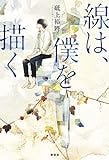
砥上裕將『線は、僕を描く』
Hiromasa Togami, “The Lines that Portray Me”
This debut novel won the 59th Mephisto Prize and was initially written as a manga (which can be read here). The main character loses his parents in an accident when he is still in college and is befriended by an ink-wash painter he meets at the gallery where he works. The artist takes him on as an apprentice, but this angers the artist’s granddaughter, who vows to beat him in an art competition. The novel uses ink-wash painting to explore themes of loss and recovery. Reviewers praise the descriptions of this art form (Togami is himself an ink-wash painter), but for some this wasn’t enough to make up for a simplistic plot.
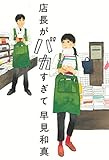
早見和真『店長がバカすぎて』
Kazumasa Hayami, “The Store Manager is Just Too Stupid”
The heroine of this novel works in a bookstore in Kichijoji, where she has to deal with all the problems her idiot manager causes. The only saving grace is her love of books and a co-worker, until one day he suddenly announces he is quitting. Although this sounds light, I will be reading this simply because it’s set in a bookstore (perhaps that explains why it was nominated?) and will serve as a break from some of the heavier books on this list.
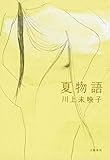
川上未映子『夏物語』
Mieko Kawakami, “Summer Story”
Natsuko, a 38 year-old woman born in Osaka and now working as a novelist in Tokyo, begins to realize that she wants to have a child of her own. She begins to look into ways she could have a child without a partner, and encounters people who force her to ask herself whether it is selfish to bring a child into this world. This is a long novel that grapples with the fact that we can’t decide whether to be born ourselves, but can decide whether to have a child.
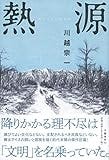
川越宗一『熱源』
Soichi Kawagoe, “Heat Source”
This book has already received several awards, including the 162nd Naoki Award and the 9th Booksellers’ Historical Novel Award. Set during the Meiji era (1836-1912), it tells the story of Yayomanekuh, an Ainu man born in Sakhalin whose homeland is stolen from him by the Japanese government. After losing his wife and many friends to smallpox and cholera, he takes on a Japanese name, Yasunosuke Yamabe, and resolves to return to Sakhalin. This story is told in parallel with the story of Bronisław Piotr Piłsudski, born in Lithuania but not allowed to speak speak Polish, his mother tongue, due to harsh Russian assimilation policies. He was sentenced to hard labor on Sakhalin for his involvement in a plot to kill the czar, and this is where he meets Yamabe. This novel, based on real events and people, depicts the effects that the Meiji government’s forced “civilization” had on the Ainu.
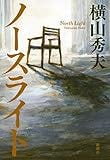
横山秀夫『ノースライト』
Hideo Yokoyama, “North Light”
In this mystery, an architect discovers that the new house he has designed for a family lies empty, with nothing in it but an old chair and a phone. This is Yokoyama’s first book in six years, since “64” (which has been translated into English as “Six Four” by Jonathan Lloyd-Davies).
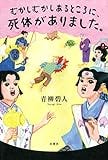
青柳碧人『むかしむかしあるところに、死体がありました。』
Aoyagi Aito, “Once Upon a Time, There Was a Corpse”
This book consists of five linked stories in which locked rooms, alibis and deathbed messages are used to retell Japanese folktales like “Urashima Taro,” “Momotaro” and “The Grateful Crane.”
知念実希人『ムゲンのi』(双葉社)
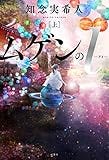
Mikito Chinen, “Infinite i”
Chinen, a practicing doctor, has written another thriller set in a hospital. A young doctor, unable to find a cure for a series of patients who are unable to wake up, consults her grandmother, who is a psychic. Her grandmother tells her that she must try mabuigumi, an Okinawan shamanistic practice in which a shaman calls back spirits that are wandering the world, untethered from the physical body. This is the third straight year that Chinen’s novels have been nominated.
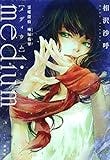
相沢沙呼『medium霊媒探偵城塚翡翠』
Sako Aizawa, “Hisui Jozuka, Psychic Detective”
Shiro Kogetsu, a mystery novelist who has also solved some difficult cases, meets Hisui Jozuka, a medium who can convey the words of the dead. The pair use psychic powers and logic to resolve cases.
小川糸『ライオンのおやつ』
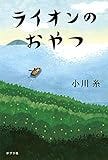
Ito Ogawa, “The Lion’s Snack”
Another author who has been nominated many times for this award, Ogawa tells the story of Shizuku, who is only 33 but has only a short time left to live. She spends her last days at a hospice in the Setouchi islands, where the patients can request a memorable food they want to eat again on Sundays. Unable to choose, Shizuku thinks about what she really wanted to do in her life.
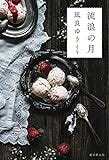
凪良ゆう『流浪の月』
Yu Nagira, “The Roving Moon”
After her father dies and her mother disappears, a young girl is sent to live with her aunt. When her cousin sexually abuses her, she resolves to run away, but is instead rescued by a 19 year-old boy who is also uncertain about his place in the world. The calm life they create for themselves is broken up after two months, and the young man is arrested and sent to a juvenile medical treatment facility. They meet again as adults and form a relationship that goes beyond either love or friendship. This novel questions what is “normal” and what families can look like, and I am particularly interested in reading this one.


